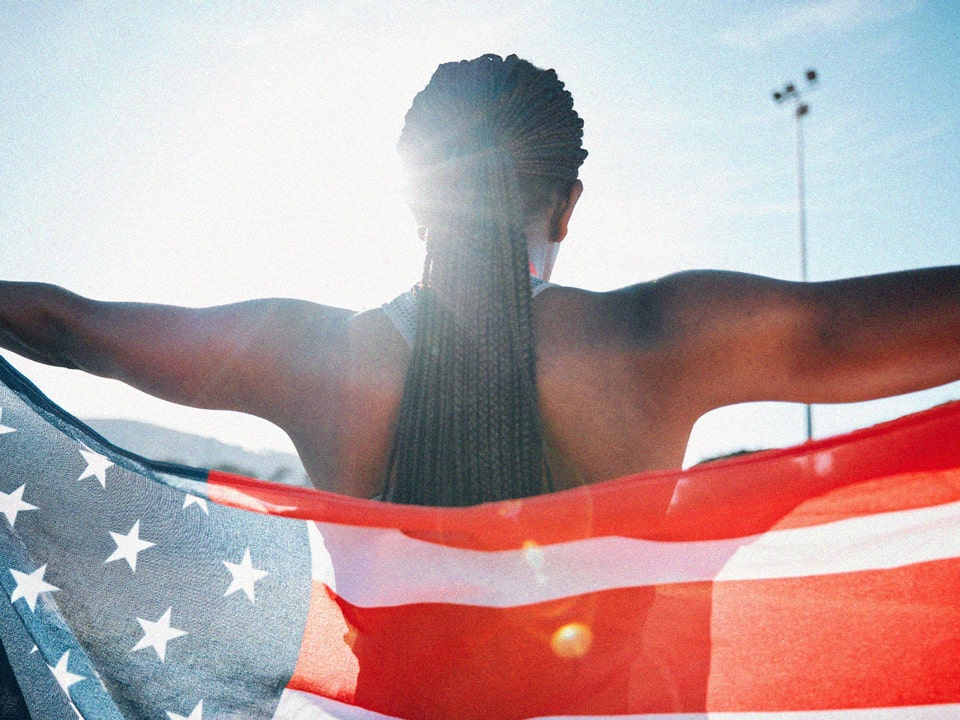Here’s How Olympians Actually Get to Sleep Before a Big Event
The stakes aren’t low.
We’ve all been there: It’s the night before an interview, a race, an early flight, or some other high-stakes thing you need to be rested or wake up early for (or both!). You’re snuggled up in bed, wide awake, and your inner voice starts to panic: Why am I not asleep yet? This is going to be so bad tomorrow! GO TO SLEEP.
For Olympians competing in multiple events, the pressure can be even more intense. Sure, it’s all relative, but still, their athletic careers and even their legacies are on the line! So, if you’re like us, that might leave you wondering, um, how do they fall asleep before a competition, and can I have some?
Turns out, you can! We caught up with current and former Olympic athletes to find out how they sleep the night before their biggest moments, and their tricks translate pretty well to our non-Olympic lives. From soothing pre-bed routines to no-fail bedtime TV, here’s how six Olympians get Zs before the biggest moments of their lives.
1. Melatonin, FTW.
“I’ve actually got chronic insomnia, and I really struggle to fall asleep in general. I take a moderately high dose of magnesium that relaxes me (also I notice better recovery on it), and then five or six grams of melatonin. FWIW, it’s hard to find NSF-backed brands, but I float between Pure Encapsulations and Momentous. It works most nights.” —Molly Seidel, 2020 Olympic Bronze Medalist
[Editor’s note: Always talk to your primary care provider before adding supplements into your routine, since even over-the-counter options can interact with certain medications, health conditions, and food/drinks.]
2. Prepare for the worst.
“Just like I prepare for competition, I’m also at the point where I know how to prepare for a bad sleep. I’ve had a bad sleep before a training session, told my coach I didn’t sleep well before showing up, and felt super anxious. But sometimes, practicing after a bad night of sleep is the reassurance I need. It shows me that I’m capable of showing up when things don’t go as I’d like. As someone who otherwise prefers 10 hours of sleep, it’s good to know that I can respond to the uncontrollable.” —Chase Ealey, 2024 Shot Put Olympian, Paris
3. Unplug.
“I really make a strong effort to disconnect from technology a couple hours before bed, especially my phone. Instead of scrolling, I love to read and spend time with my loved ones. That helps me feel a lot more at ease before I close my eyes.” —Valarie Allman, 2x Olympic Gold Medalist in the Discus, Tokyo, Paris
4. Plan ahead.
“During the late luteal phase of my cycle, I know I’m going to have a higher body temperature, which could mean I won’t sleep as well. So, in order to accommodate for that before competition, I turn down the air conditioning a couple of degrees. Sleeping in a cooler room helps me, so does wearing a sleep mask and using the mindfulness app Open to quiet my mind—even if it’s just for 10 minutes.” —Colleen Quigley, 2016 Steeplechase Olympian, Rio
5. Organize your space.
“I really like to prioritize an early bedtime and slow-down routine every night, especially before competitions. So that means trying to have a similar time frame of getting into bed. And before I do that, I make sure to have everything in my space organized. It helps me find my calm.” —Jordan Larson, Volleyball, 4X Olympian, 3X Olympic Medalist in Volleyball
6. When in doubt, turn on Seinfeld.
“I’m a big fan of turning on a comfort show but not actually watching it on the screen. Instead, I put in my headphones, set a timer for 35 minutes so it shuts off automatically, and focus on something that has nothing to do with competition. This helps me pull my brain away from whatever I’m worrying about. My go-to is Seinfeld, and it can be any episode.” —Aisha Praught-Leer, 2X Olympian, Steeplechase (2016), 1500m (2020)
Wondermind does not provide medical advice, diagnosis, or treatment. Any information published on this website or by this brand is not intended as a replacement for medical advice. Always consult a qualified health or mental health professional with any questions or concerns about your mental health.




